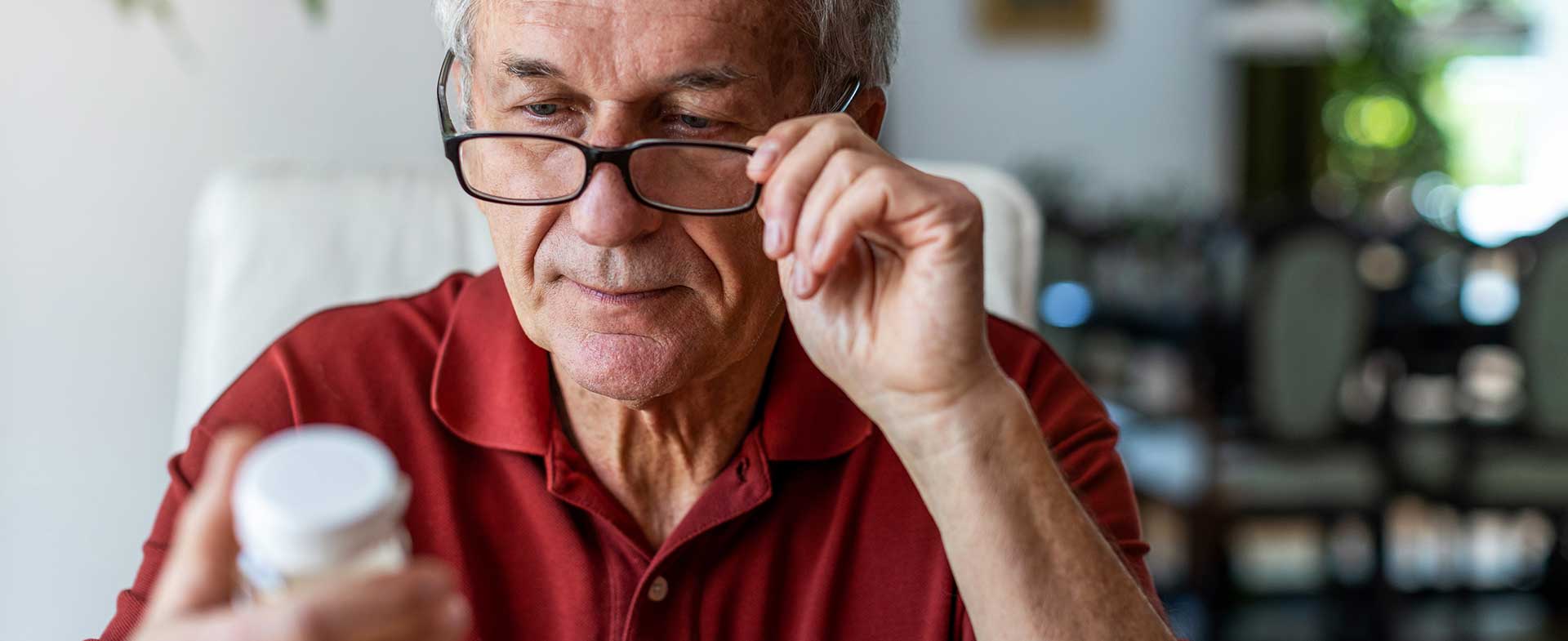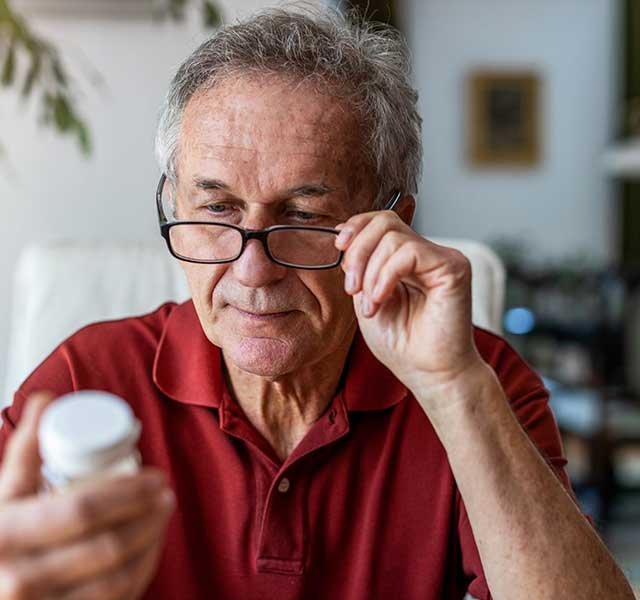COVID-19 will likely never go away, but the good news is there are a few outpatient treatments (along with effective vaccines) that can help prevent serious illness. “These treatments are all antiviral drugs, meaning they prevent the virus from replicating in the cells,” says Bruce Muma, M.D., an internal medicine physician at Henry Ford Health. “In order to work, they must be taken in the early stage of illness, before someone requires hospitalization.”
Here, Dr. Muma shares the outpatient treatments to know about—and who should take them.
1. Paxlovid (Nirmatrelvir/Ritonavir)
This oral antiviral pill must be taken within five days of the onset of COVID-19 symptoms. It should be taken twice daily for five days. “Paxlovid is the preferred outpatient treatment,” says Dr. Muma. “It is 88% effective in reducing the risk of hospitalization or death.” The Food and Drug Administration (FDA) has issued an emergency use authorization for its use in ages 12+ who have underlying medical conditions—and the underlying medical conditions listed are quite broad.
“Paxlovid isn’t only authorized for people who are immunocompromised or who have chronic diseases like diabetes,” says Dr. Muma. “You can take Paxlovid if you’re overweight. You can take it if you have high blood pressure, substance abuse issues, if you’re a smoker or if you have disabilities. Hospitalization with COVID-19 doesn’t usually occur until around day eight and you have to decide whether to take Paxlovid by day five. But if you are a high-risk individual—if you qualify to take Paxlovid—I recommend you take it to prevent a serious outcome.”
That said, Paxlovid has several drug interactions, so if you’re on a medication that’s incompatible with Paxlovid, you may not be able to take it. “Talk to your doctor,” says Dr. Muma. “If you’re not on a life-sustaining drug, it may be possible to adjust or stop the medication for eight to ten days while you’re taking Paxlovid.”
The most common Paxlovid side effects include an upset stomach and altered sense of taste. “A mild case of rebound COVID also occurs in about 5% to 6% of people, which is when you experience COVID-19 symptoms around three days after your last dose of Paxlovid,” says Dr. Muma. “You’re not at risk of severe disease, you just have a bit of prolonged illness.”
2. Lagevrio (Molnupiravir)
This is an alternative oral medication for those who can’t take Paxlovid. “It is better tolerated and there are fewer drug interactions, but it’s also way less effective—it’s about 30% effective in reducing hospitalization or death due to COVID-19,” says Dr. Muma. It must be taken within five days of the onset of symptoms and should be taken twice daily for five days. The FDA has also issued an emergency use authorization for its use in ages 18+.
3. Veklury (Remdesivir)
This IV treatment has been one of the primary inpatient COVID-19 treatments for a while, but it is now also FDA-approved for outpatient use. “It’s logistically difficult because you need an IV infusion for three days in a row, but it’s just about equally as effective as Paxlovid,” says Dr. Muma. “So it’s really for people who cannot take Paxlovid but who need a treatment with more than a 30% efficacy rate.” It must be taken within seven days of the onset of symptoms—but the sooner you take it, the better.
What About Monoclonal Antibody Treatment?
Monoclonal antibody therapy works differently from antiviral drugs. They’re manufactured antibody proteins that attach themselves to the virus, immobilizing it and activating the immune system to clear the virus from the body. When the pandemic began, monoclonal antibody therapy was the main line of treatment. But now it’s no longer offered.
“Monoclonal antibodies are not effective against the new COVID-19 variants,” says Dr. Muma. “That has been the challenge with monoclonal antibodies—trying to stay ahead of the variants. Whenever a resistant strain started to become prevalent, we had to alter the monoclonal antibody treatment for it to be effective. We’ve since made four alterations over the years and we currently don’t have an option that protects against the dominant COVID-19 variant.”
Luckily, Paxlovid and Veklury are effective alternatives. But of course, if you are at high-risk for contracting a serious case of COVID-19, talk to your doctor to see which of the available treatments would be best for you.
And although we have effective treatments, it’s still recommended to get the first line of defense: the bivalent COVID-19 booster. “We strongly encourage everyone to get vaccinated,” says Dr. Muma. “The new booster is effective against both the original strain of COVID-19 and the Omicron variants and can help decrease the severity of illness, should you contract COVID-19.”
Learn more about COVID-19 treatments offered at Henry Ford Health.
Bruce Muma, M.D., is an internal medicine physician at Henry Ford Health. He is the CEO of Henry Ford Physician Network.



